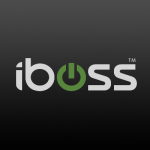We implemented Fortinet FortiGate SD-WAN for a small company that had two internet service providers. The goal was to configure the two links to operate independently, ensuring that they don't share the load. This way, when one link reaches a certain threshold, we can seamlessly switch to the other without any issues.
We have FortiManager, which enables us to have a unified view for monitoring and managing our devices centrally, as well as dispatching policies.
The solution enables us to consolidate tools and applications and manage them all through FortiManager. You can configure your SD-WAN from Forti Manager, which gives you management functionality.
The interoperability of the solutions is good because it allows for compatibility with brands other than Fortinet, and we don't encounter issues with it.
FortiGate SD-WAN facilitated a smooth transition for our customers between their two internet service providers, ensuring uninterrupted connectivity without any downtime.
The solution has helped us remediate threats more quickly by enabling real-time monitoring of both links, providing complete visibility into our end links. You can monitor both links on one platform. It's just one single pane of glass where you watch in real-time what is happening. It's easy to manage that way. It helps you to easily remediate issues.
As long as our policies are granular we are able to use the solution to reduce our MTTD.
The solution has helped to reduce our MTTR from what used to be five minutes down to 45 seconds.
The solution has helped to reduce the number of help desk tickets because it is now extremely rare for both links to be down simultaneously.
SD-WAN, regardless of the OEM being used, is a beneficial technology that is increasingly adopted by businesses due to its positive impact on business security. It allows us to maintain uninterrupted operations without concerns about past issues.
Fortinet FortiGate is user-friendly.
The support we receive when we need to upgrade is not satisfactory and has room for improvement.
I have been using Fortinet FortiGate for two years.
The solution is stable and we have not had any issues.
The solution is highly scalable.
The technical support is good, but they take a long time to respond and resolve the issues.
I have also used Cisco, whose systems are robust and rarely experience downtime. However, with Fortinet, their licensing is highly competitive in terms of pricing. Cisco is primarily geared towards enterprise-level companies, but the learning curve for Cisco is higher compared to Fortinet.
Fortinet's price is very competitive compared to when you look at other brands of equal functionality. The hardware and licensing are compared to the others. It's also simple to use.
The initial setup is straightforward. I did the deployment and didn't have any issues with it. It took one day to complete.
The solution provides value and, therefore, offers a return on investment.
The price is highly competitive when compared to other brands that offer similar functionality. Fortinet FortiGate is more affordable both in terms of hardware and licensing, in comparison to its competitors.
I give Fortinet FortiGate a seven out of ten.
I recommend FortiGate SD-WAN because it is easy to implement and simple to use.


















